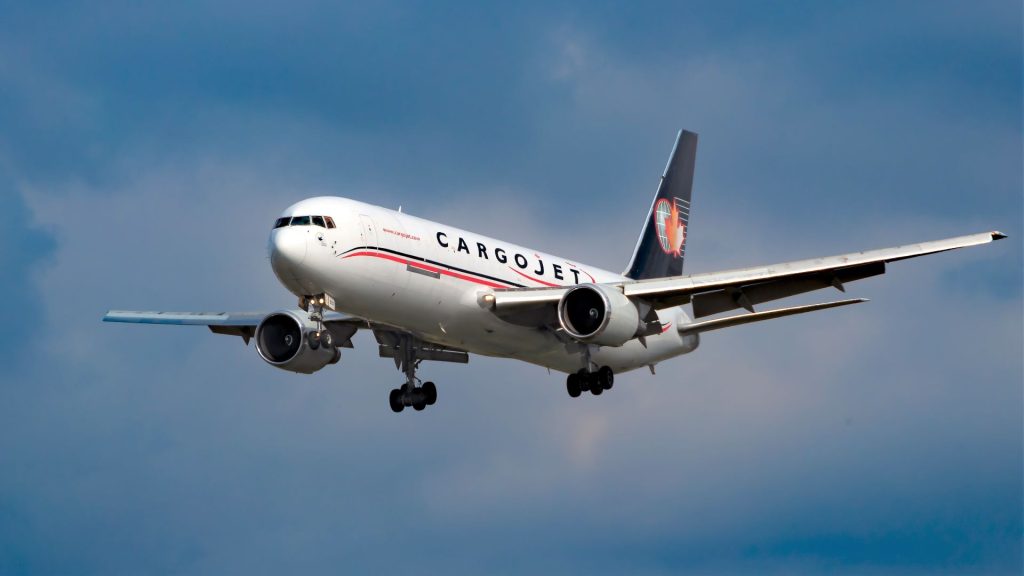Cargojet, best known for operating a domestic overnight airfreight network in Canada for Amazon and DHL Express, said Monday it has begun providing scheduled charter service for Great Vision HK Express to support growing e-commerce orders from China.
Under a three-year contract with China-based Great Vision HK Express, estimated to generate US$116.2 million in total revenue, the Canadian air cargo company will operate at least three flights per week from Hangzhou to Vancouver, British Columbia, utilizing Boeing 767-300 converted freighters.
The agreement reflects the degree to which e-commerce platforms in China — Shein, Temu, Alibaba, JD.com — have become the primary driver of growth in the air cargo industry in the past two years.
Great Vision HK Express provides cross-border e-commerce logistics services for online sellers, including pickup, pre-sorting, airfreight, customs clearance, warehousing and distribution, and last-mile delivery.
Cargojet (TSX: CJT) said it began dedicated charter service for Great Vision on May 22 and has completed eight flights so far. A portion of parcels will be delivered to customers in the Vancouver area. The rest will be transferred to Cargojet freighters that fly daily to 15 other Canadian cities for distribution across the country.
Cargojet has a fleet of 41 Boeing 757 and 767 freighter aircraft. The company’s ability to leverage current capacity to service the Great Vision contract suggests the deal will boost the bottom line because it won’t have to absorb extra startup costs.
“We continue to explore opportunities to maximize asset and aircraft utilization and look forward to a strong partnership with Great Vision HK,” said co-CEO Pauline Dhillon in a news release.
Aviation professionals generally agree that Boeing 767 freighters are best suited for regional operations versus long-haul international routes, but airlines make do with the medium widebody aircraft if that’s what they have. Cargojet last year backed out of investment plans for eight Boeing 777 freighters, balking at the $1.2 billion cost to launch the larger fleet type in favor of preserving cash flow under uncertain market conditions. The 777-300 it was pursuing fit well with transcontinental e-commerce operations because of its high cubic volume.
Cargojet hasn’t permanently abandoned its dreams for 777 freighters. It still retains four 777-300 conversion slots with Israel Aircraft Industries and is negotiating to defer them until market conditions are more conducive to growth, executives said earlier this year.
The boom in B2C shipments from e-commerce platforms and fast-fashion companies in China has become a driving force behind the air cargo market’s pandemic recovery and shows no sign of slowing down.
New York-based Atlas Air recently disclosed it will operate two Boeing 747-400 jumbo jets for Shein and Temu to the United States, starting in the third quarter. Chinese freight forwarder YunExpress has contracted with Atlas Air to operate 777 freighters multiple times per week on routes between China and the U.S. YunExpress also has created a private air service between China and Europe with the help of Chinese carrier Central Airlines.
Cargojet’s management expressed guarded optimism earlier this year about revenue growth as volumes picked up in the first quarter, especially in the domestic market.
Cargojet’s adjusted earnings fell 9% last year to $223 million. The company reported revenue of $169 million was nearly flat year over year, while adjusted earnings excluding accounting measures and taxes ticked up 3.6% to $57 million. Despite the decline, adjusted EBITDA is double what it was in 2019, before COVID, in large measure due to diversified lines of business such as dedicated contract transportation.



